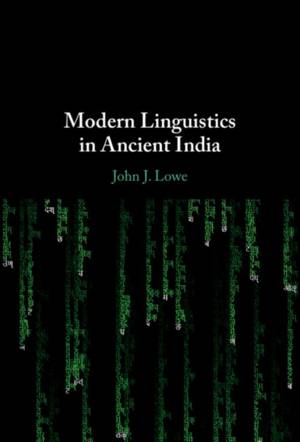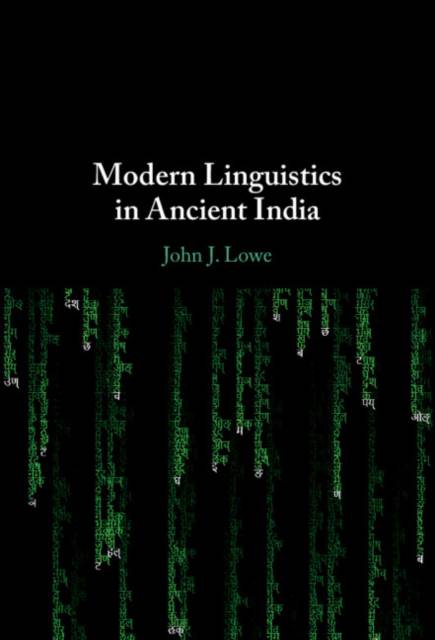
Door een staking bij bpost kan je online bestelling op dit moment iets langer onderweg zijn dan voorzien. Dringend iets nodig? Onze winkels ontvangen jou met open armen!
- Afhalen na 1 uur in een winkel met voorraad
- Gratis thuislevering in België vanaf € 30
- Ruim aanbod met 7 miljoen producten
Door een staking bij bpost kan je online bestelling op dit moment iets langer onderweg zijn dan voorzien. Dringend iets nodig? Onze winkels ontvangen jou met open armen!
- Afhalen na 1 uur in een winkel met voorraad
- Gratis thuislevering in België vanaf € 30
- Ruim aanbod met 7 miljoen producten
Zoeken
Omschrijving
The ancient Indian linguistic tradition has been influential in the development of modern linguistics, yet is not well known among modern Western linguists. This unique book addresses this gap by providing an accessible introduction to the Indian linguistic tradition, covering its most important achievements and ideas, and assessing its impact on Western linguistics. It shows how ancient Indian methods of linguistic analysis can be applied to a number of topical issues across the disciplines of modern linguistics-spanning phonetics, phonology, morphology, syntax, semantics, and computational linguistics. Exploring the parallels, differences, and connections in how both traditions treat major issues in linguistic science, it sheds new light on a number of topical issues in linguistic theory. Synthesizing existing major work on both sides, it makes Indian linguistics accessible to Western linguists for the first time, as well as making ideas from mainstream linguistics more accessible to students and scholars of Indian grammar.
Specificaties
Betrokkenen
- Auteur(s):
- Uitgeverij:
Inhoud
- Aantal bladzijden:
- 278
- Taal:
- Engels
Eigenschappen
- Productcode (EAN):
- 9781009364508
- Verschijningsdatum:
- 21/03/2024
- Uitvoering:
- Hardcover
- Formaat:
- Genaaid
- Afmetingen:
- 152 mm x 229 mm
- Gewicht:
- 544 g

Alleen bij Standaard Boekhandel
+ 360 punten op je klantenkaart van Standaard Boekhandel
Beoordelingen
We publiceren alleen reviews die voldoen aan de voorwaarden voor reviews. Bekijk onze voorwaarden voor reviews.











